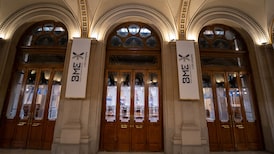Brazil-based financial services unicorn Creditas launched its secondhand car buying, selling, trading, and financing operation last year when it set up its vehicle reconditioning center in Barueri and showrooms in the city of São Paulo. In July 2021, the fintech bought the secondhand cars trading platform Volanty, which already had operations in Rio de Janeiro, with two street shops and four more units in São Paulo.
The startup swapped Volanty’s street shops for larger shops and made a series of openings at the end of last year. Now, Creditas Auto has physical spaces in shopping malls Cidade São Paulo, Metrô Santa Cruz, and new units in malls Jardim Sul, West Plaza, Tietê Plaza and WTC/D&D. The company also has shops in São Bernardo do Campo, in São Bernardo Plaza Shopping, and in Jundiaí, in Jundiaí Shopping.
In Rio de Janeiro, the new units are located on Shopping Metropolitano Barra and Edifício Garagem Menezes Côrtes. At the end of last month, rival Kavak also announced its entrance in Rio de Janeiro, where it plans to invest R$ 550 million.
“We have a cool structure to serve both cities well and, obviously we are working on new openings,” explains Fabio Zveibil, VP of Consumer Solutions at Creditas, in an interview with Bloomberg Línea.
Creditas Auto works omnichannel, selling autos through a digital platform and physical spaces. It is possible to deliver cars bought via e-commerce “anywhere”, according to Zveibil.
“If the customer prefers to do the digital process we do it, we do it face-to-face, by phone, by video, and we deliver it to the customer’s house. If the client wants to sell the car to me, he can schedule an inspection, and we go to his house, buy the car, pay on the spot, and usually he delivers it at a physical point, or we also pick it up at his house. We do both models, if the customer wants a digital experience, he has it, but if he wants to physically see the car, he goes to one of the shops”, he said.
The more shops, the greater capillarity. Unlike its Mexican competitor Kavak, Creditas buys from both individuals and businesses. “Preferably we buy from individuals, but we also buy from rental companies and shops,” Zveibil said.
The cars, which come from various channels, complement the startup’s inventory of about 3,000 vehicles. Of those, 1,800 are available for sale on the site. “[The difference from 1,200 is that] There are cars that are in process, that have already been bought and remain to be delivered or are in the process of transferring documentation.”
When Creditas buys a car, it checks 250 items to ensure the vehicle is in good condition, overhauling the mechanical, electrical, changing parts, and fixing the aesthetics. The customer can test drive the car for ten days or 500 km (310 miles), and, if they don’t like it, return it. The startup also grants a lifetime warranty for the car, provided the customer follows the warranty manual and makes the revisions to the vehicle. “These differentials take away that pain for the customer of not knowing what they are buying,” emphasizes the VP.
Creditas’ core business is lending. What started as a “loan with the car as collateral”, incorporated the business unit of used car and car insurance transactions. Thus, Creditas does its own financing of the used cars it sells but also has partnerships with other banks. The fintech does not yet disclose figures and sales of its unit Creditas Auto.
In January, used car sales fell 29.9% compared to December 2021, according to Fenauto (Brazilian National Federation of Associations of Motor Vehicle Dealers). According to the entity, the sale of used vehicles last month in Brazil was lower than in the same period in other years, a result of the greater caution of consumers concerning the economy.
For the federation, the increase of commitments with taxes and other expenses, common at the beginning of the year, can influence and oscillate the indices of consumer confidence in the economy, affecting sales at the beginning of the year.
Also Read:











